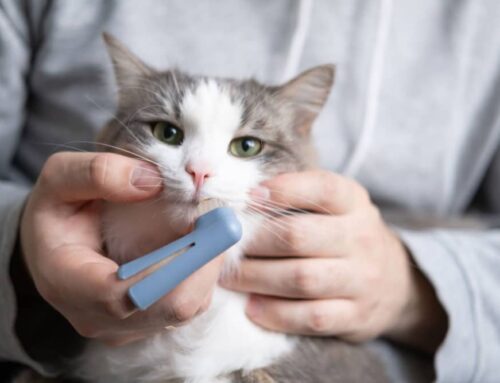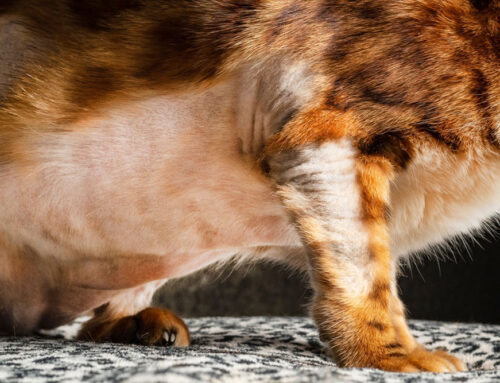Your cat’s highly sensitive nature predisposes them to stress, which can cause your cat and your entire household serious problems. Our Just Cats Clinic team speaks cat, making us feline stress experts. Read our guide to learn how to identify and help reduce your cat’s anxiety.
Identifying feline stressors
Because house cats descend from wild cats who are simultaneously predators and other wild animals’ prey, domesticated cats are naturally highly reactive. This heritage predisposes your pet cat to experiencing anxiety, which numerous situations can trigger, including:
- Change in routine — A change in daily routine, such as rescheduling your work or school hours, can cause stress for your cat.
- Change in household occupants — Bringing home a new baby, welcoming house guests, and sending students off to college can disrupt your cat’s world.
- Introducing a new pet — Adopting a new cat or dog can threaten your current cat, leading to stress.
- Moving to a new residence — Leaving their familiar environment and moving to a new home can be disconcerting for your cat, especially if the move involves long-distance travel.
- Parties and holidays — Gatherings involving unfamiliar people, loud music, laughing, and talking, can frighten your cat.
- Loud noises — Loud noises, such as fireworks, thunder, and construction machinery, can trigger stress.
- Outside threats — Seeing other pets and wildlife outside their home can be stressful for your cat.
- Veterinary visits — Traveling to an unfamiliar environment that smells funny where people poke and prod them can upset your cat.
- Multicat households — Cats who live in a multicat household are more likely to be stressed, especially if you do not provide enough resources, such as litter boxes, scratching posts, and food and water bowls.
- Unsatisfactory litter box setup — Cats can be stressed if their litter box setup doesn’t meet their standards, especially if the litter box needs cleaning or is in an inconvenient location.
- Illness — Cats who are sick or in pain experience stress.
- Cognitive dysfunction — Cognitive dysfunction is a condition that affects older cats, leading to memory loss and increased anxiety.
Recognizing feline stress

A crouching, hissing feline who has their ears back is obviously stressed. However, cats’ chronic stress signs are typically more subtle, including:
- Hiding — All cats enjoy quiet time in a safe hiding place, but if your cat is hiding more than usual, they may be stressed.
- Changes in interaction — Depending on your cat’s personality, they may avoid interaction or become more needy when they are stressed.
- Decreased appetite — Stressed cats may not be as interested in eating as they are when they feel secure.
- Heightened awareness — Stress typically causes cats to be more aware of their surroundings, becoming hypervigilant and easily startled.
- Decreased playfulness — A stressed cat may be less interested in playing.
- Destructive behavior — Stress may cause your cat to exhibit destructive behavior such as clawing curtains or furniture.
- Increased facial rubbing — If your cat feels an intruder is threatening their territory, they may obsessively rub their face on surfaces to leave their scent and establish dominance.
- Litter box issues — A stressed cat may refuse to use their litter box. In some cases, stress leads to urinary tract disorders that can exacerbate litter box issues.
- Overgrooming — Some stressed cats groom excessively, often creating bald spots and skin lesions.
- Aggression — Stress may cause a cat to exhibit aggression toward people or other pets in the home.
- Gastrointestinal (GI) signs — Stress can cause a cat to vomit and have diarrhea.
Addressing feline stress
If you can determine the source of your cat’s stress, do your best to eliminate the problem. However, sometimes you have to help your cat learn to cope with a stressor by following these tips:
- Properly socialize your kitten — Exposing your kitten to numerous positive sites, sounds, and experiences can help them become a well-adjusted adult cat who can better tolerate changes in their world.
- Schedule regular wellness visits — Your veterinary professional should evaluate your adult cat at least once per year, and senior cat every six months. Through these wellness exams, our Just Cats Clinic veterinary team can detect a health condition before the illness can cause your cat stress.
- Create a cat safe zone — Create a quiet place where your cat can hide and feel safe, especially if you are hosting a gathering.
- Provide vertical space — Because cats are predator and prey animals, they appreciate the ability to survey their environment from an elevated position. Ensure they have high places to rest such as cat trees and open shelving.
- Ensure the litter box setup is acceptable — Cats are finicky about their litter box setups. Tips to ensure the box meets their approval include:
- Scoop the litter twice a day and change out the litter at least once a week.
- Use about one to two inches of unscented, clumping litter.
- Place the litter box in a quiet, convenient place, so your cat isn’t disturbed when they need their privacy.
- Ensure the box is large enough. Your cat’s litter box should be as long as they are from their nose to their outstretched tail’s tip, and as wide as they are from their nose to their tail’s base.
- Provide enough litter boxes for every cat in your home. The general rule is one box for every cat, plus one extra.
- Provide appropriate scratching posts — Cats need to scratch, and they will target your curtains, furniture, or carpet if you don’t provide appropriate scratching posts. Provide horizontal and vertical scratching posts throughout your home.
- Provide enough resources — Ensure your cats don’t have to share resources. Provide food and water bowls, toys, scratching posts, and resting places for every cat in your home.
- Play with your cat — Cats need physical exercise and mental stimulation to stave off boredom and stay engaged. Schedule time daily to play with your feline friend, and consider using a food puzzle toy to make mealtimes more exciting.
Feline stress can be problematic, but if you follow these tips, you should be able to help reduce your cat’s anxiety. If you are worried your cat is stressed, contact our Just Cats Clinic team so we can determine the source and devise a strategy to help alleviate the issue.













